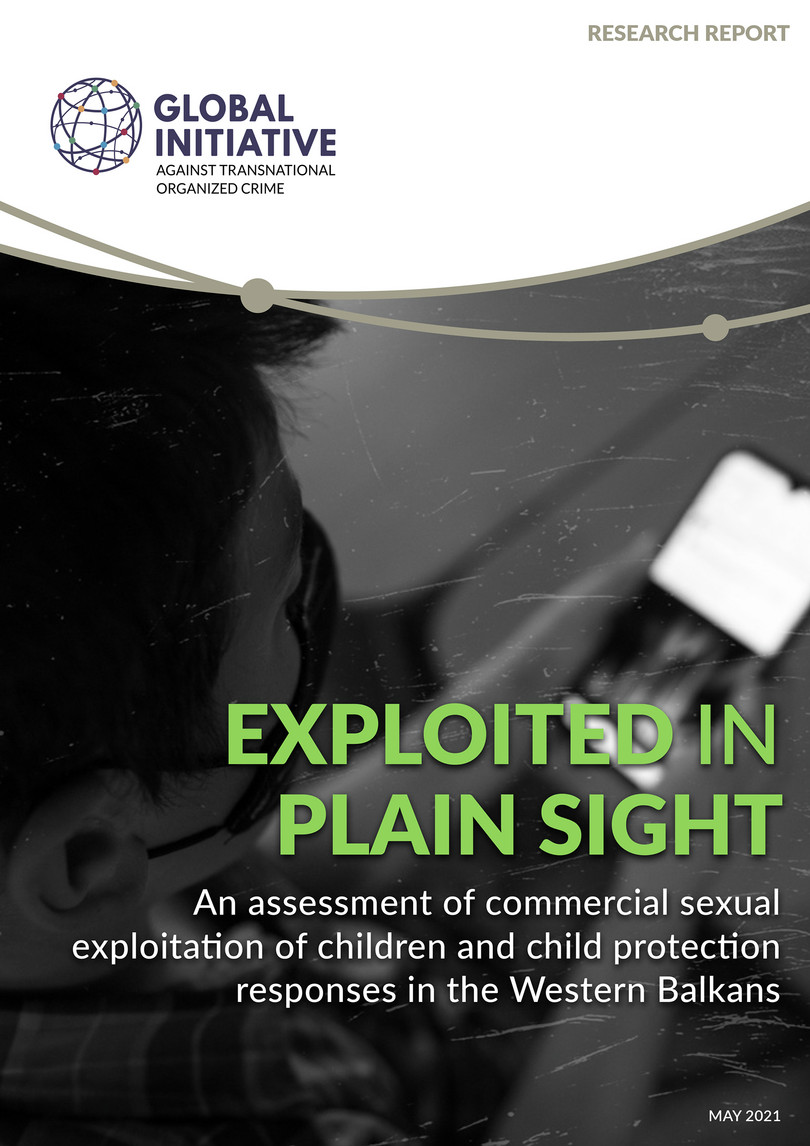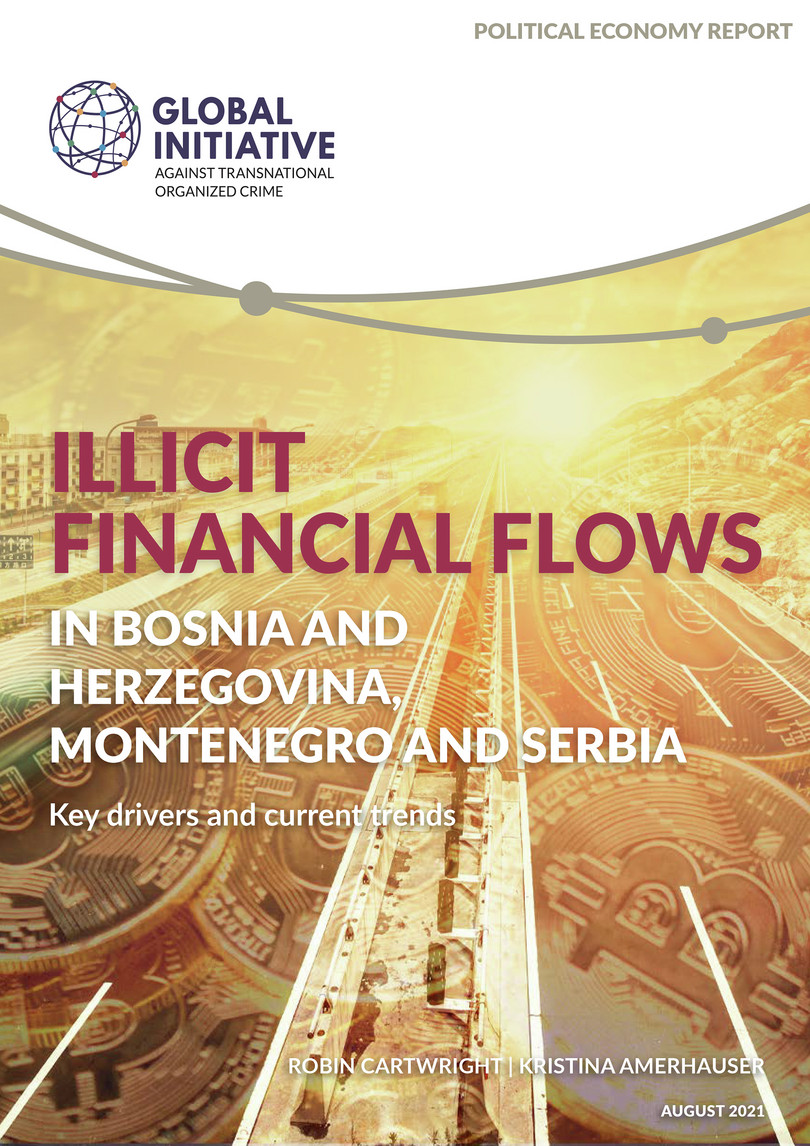Publications at a glance
Here we provide an overview of recent publications on organized crime in the region covering a wide range of topics and include new and forthcoming GI-TOC publications.
| Nadia El-Shaarawi and Maple Razsa, Movements upon movements: Refugee and activist struggles to open the Balkan route to Europe, History and Anthropology, 30, 1, 91–112. | In 2015–2016, 1.2 million refugees sought safety in Europe via the Balkan route. This paper explains how this unprecedented movement of people took place from an ethnographic perspective. |
| Andi Hoxhaj and Fabian Zhilla, The impact of COVID-19 measures on the rule of law in the Western Balkans and the increase of authoritarianism, European Journal of Comparative Law and Governance, 8, 4, 271–303. | This article offers a comparative analysis of COVID-19 legal measures and models of governance adopted in the Western Balkans (Albania, Bosnia and Herzegovina, Kosovo, Montenegro, North Macedonia and Serbia). It also explores their impact on the rule of law and the ability of parliaments and civil society to scrutinize government decisions. |
| Marko Kmezić and Dejan Atanasijević, How organized is organized crime and drug trafficking in Serbia, Kriminalističke teme – Časopis za kriminalistiku, kriminologiju i sigurnosne studij, 19, 6, 1–14. | The production and trafficking of drugs in Serbia is the dominant and most profitable form of organized crime. This study examines the political, economic and social relations of people involved in drug trafficking in Serbia. |
| Sandro Knezović, Vlatko Cvrtila and Zrinka Vučinović, Croatia’s police and security community building in the Western Balkans, Eastern Journal of European Studies, 8, 2, 167–184. | The article examines the potential existence of a security community within the Western Balkan region by exploring the contribution of the police as a professional group in Croatia to the process of building a security community. |
| Sandra Kobajica, Criminological characteristics of crime against the environment in Bosnia and Herzegovina, PhD dissertation, University of Sarajevo, Faculty of Criminal Justice, Criminology and Security Studies, 2021. | This paper investigates the root causes and manifestations of environmental crime in Bosnia and Herzegovina from a theoretical and an empirical point of view. It takes a modern criminological perspective focused on environmental or ‘green’ criminology. |
| Danilo Mandic, Trafficking and Syrian refugee smuggling: Evidence from the Balkan route, Social Inclusion, 5, 2, 28–38. | This article investigates how Syrian refugees interact with smugglers, shedding light on how human smuggling and human trafficking interrelate along the Balkan route. |
| Davor Mikulić and Goran Buturac, In what measure is public finance sustainability threatened by illicit tobacco trade: The case of Western Balkan countries, Sustainability, 12, 1, 401. | This paper estimates the volume of the illicit tobacco trade, identifying and quantifying the key factors behind it, its effect on public finance sustainability and its impacts on the intensity of the overall tobacco trade. |
| Valery Perry and Ivan Stefanovski, Sell out, tune out, get out, or freak out? Understanding corruption, state capture, radicalization, pacification, resilience, and emigration in Bosnia and Herzegovina and North Macedonia, Eurothink – Center for European Strategies, 2021. | This research initiative explores whether the ideas presented in Sarah Chayes’ book Thieves of State: Why Corruption Threatens Global Security help in understanding the current social, political and economic dynamics of Bosnia and Herzegovina and North Macedonia. |
| Iztok Prezelj and Nina Otorepec Vogrinčič, Criminal and networked state capture in the Western Balkans: the case of the Zemun clan, Southeast European and Black Sea Studies, 20, 4, 547–570. | In this paper, the authors argue that the Western Balkans occasionally face the problem of networked state capture based on a corrupt nexus among organized crime, business, politics, security services and the judiciary. |
| Branislav Radeljić and Vladimir Đorđević, Clientelism and the Abuse of Power in the Western Balkans, Journal of Balkan and Near Eastern Studies, 22, 5, 597–612. | Focusing on Serbia and Kosovo, this paper argues that criminal networks and the ruling political and economic elites have become inseparable, which has a direct influence on the two countries’ EU integration processes. |
| Ina Rama, Overview of the characteristics of the Albanian organized crime: Development trends over the years, Mediterranean Journal of Social Sciences, 12, 4, 112. | The paper describes some features of the Albanian organized crime scene, its historical context and evolution of the way its groups are organized and the types and fields of activity in which they are involved. |
| Vedran Recher, Tobacco smuggling in the Western Balkan region: Exploring habits, attitudes, and predictors of illegal tobacco demand, The Institute of Economics, 1, 1–24. | This paper investigates tobacco smuggling in the Western Balkans, a region notorious for being the main smuggling route for Western European countries. Data is used to explore smoking habits, attitudes about the illicit market and predictors of illicit market demand. |
| Věra Stojarová, Media in the Western Balkans: Who controls the past controls the future, Southeast European and Black Sea Studies, 20, 1, 161–181. | The article assesses the role of the media in relation to democratization and EU accession in the Western Balkans, as well as the long-term development of media freedom in light of economic and political pressure. |
New and forthcoming GI-TOC publications


Exploited in plain sight: An assessment of commercial sexual exploitation of children and child protection responses in the Western Balkans
This report assesses children’s vulnerability to commercial sexual exploitation of children (CSEC) across the WB6, focusing specifically on online sexual exploitation of children and sexual exploitation of children in travel and tourism. It also provides an overview of what law enforcement authorities, private companies and civil society organizations are doing – and what they are not doing – to respond to, combat and prevent the various manifestations of CSEC.
Illicit financial flows in Bosnia and Herzegovina, Montenegro and Serbia: Key drivers and current trends
Robin Cartwright and Kristina Amerhauser
This report completes our study of illicit financial flows (IFFs) in the Western Balkans. Our focus this time is Bosnia and Herzegovina, Montenegro and Serbia. IFFs are the mechanisms by which money earned illegally is transferred into and out of economies to criminal beneficiaries worldwide. Each year, large sums of money are transferred out of developing and transitioning economies. These are funds that could have been used for public and private goods: public services, investment or jobs. The whole of society suffers as a result of their loss.
